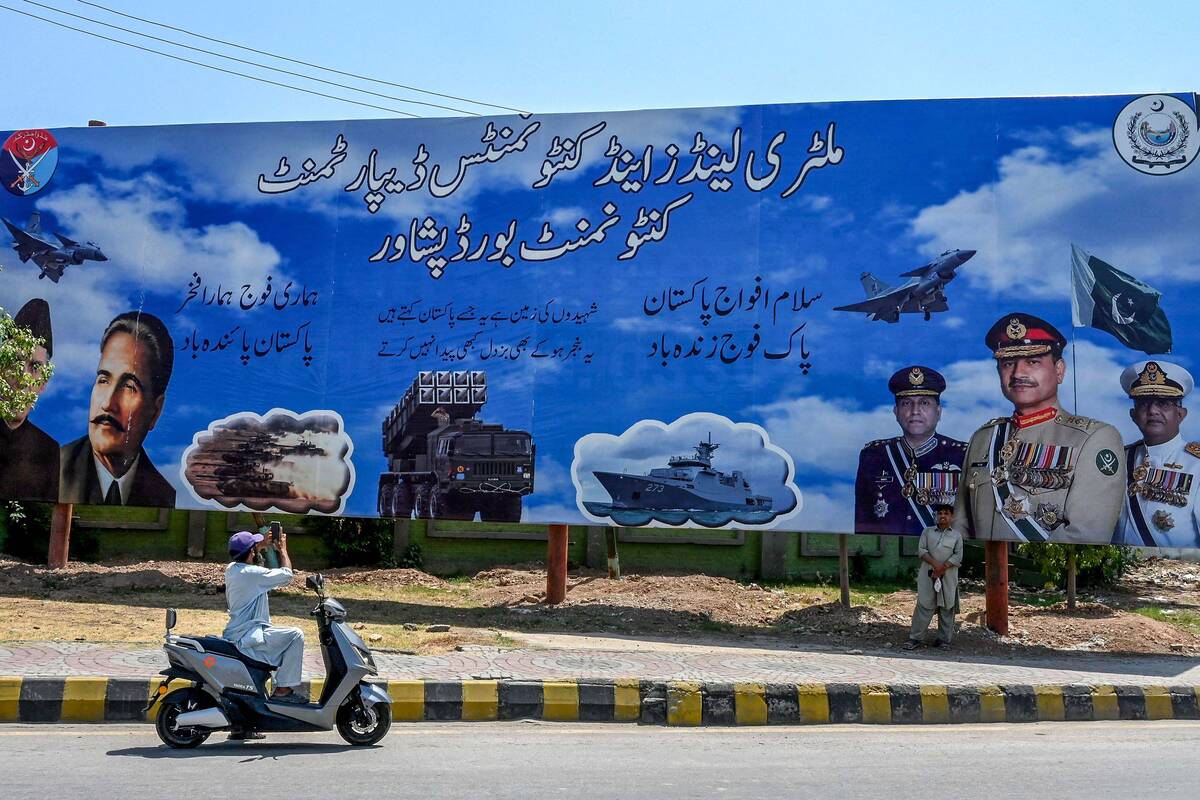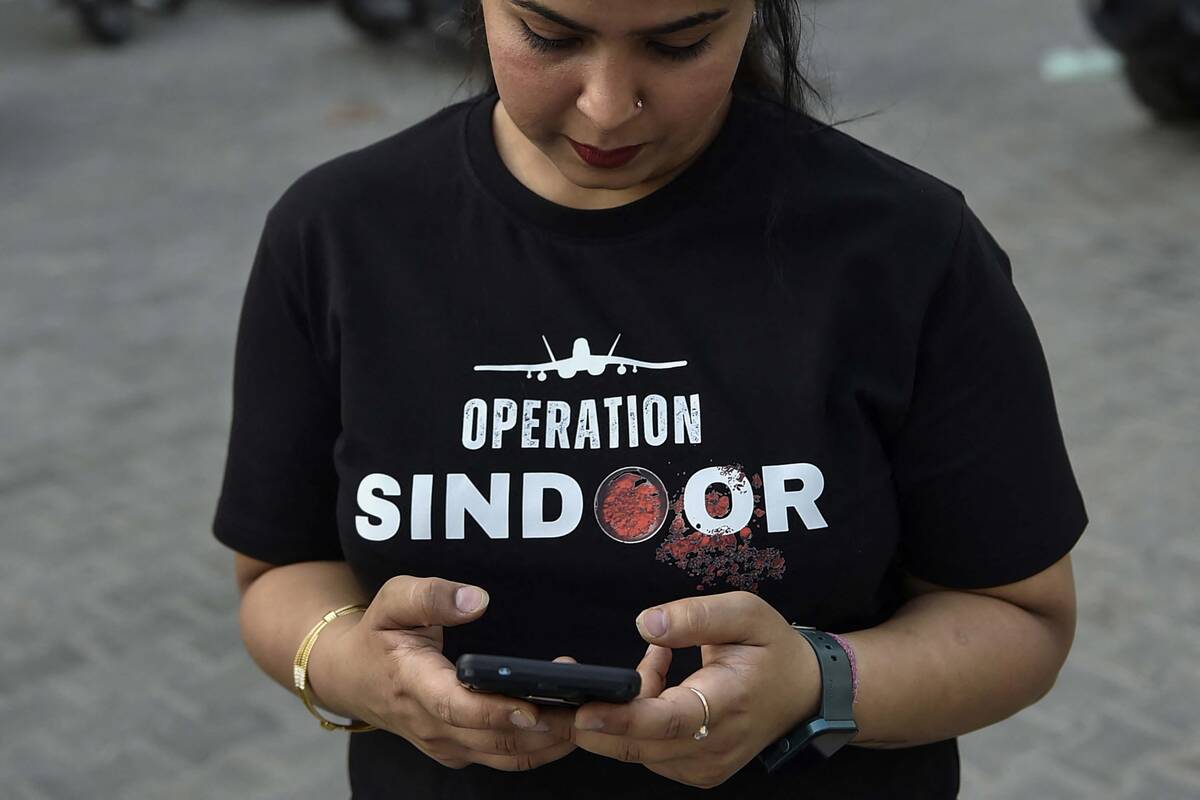LONDON: Saudi Arabia is participating in the 4th London Design Biennale with a pavilion entitled “Woven” designed and created by leading designers Ruba Alkhaldi and Lojain Rafaa.
Over the course of the 25-day biennale, which began June 8, a 50-meter-long tapestry will be woven by visitors to the Saudi Pavilion, based on the traditional Al-Sadu weaving practice historically used by Bedouin women in the Gulf.
This is the first time that the Kingdom, which is being represented by the Architecture and Design Commission — part of the Ministry of Culture — has participated in the annual exhibition with a large-scale interactive display.

A traditional sadu weaver in Saudi Arabia. (Supplied)
“We had an invited call for participation to allow many of our designers to have an opportunity to showcase their work,” Dr. Sumayah Al-Solaiman, CEO of the commission, told Arab News, adding that the response “shows how, now, there is a legacy that we are building on.”
She continued: “The traditional art of weaving is also very forward-looking, in the sense that it’s a collaborative design piece where every thread that is now put into the woven canvas is some sort of a timestamp of what is important in our future. And allowing all the participants who would like to be part of this to have a voice and tell us what is important to them,” she added.
The installation consists of a large loom and visual displays. Participants can choose to weave one of five different color threads. The five colors, according to the curators, represent innovation, nature, spirituality, knowledge, and wellness.
Al-Solaiman said one of the commission’s aims was to showcase the richness of Saudi culture. “If we look at the traditional art, traditional architecture and how all of that is influencing our cultural renaissance at this time, it’s an amazing time for us to have this multiplicity of voices coming in and showcasing that.”

Victoria Broackes, director of London Design Biennale, gives the keynote address at London Design Biennale 2023. (Getty Images)
She said the response to the pavilion has been “resoundingly positive,” and that she is excited to see the outcome, as it will create a legacy that can then be displayed at other venues.
The theme of this year’s biennale is “The Global Game: Remapping Collaborations” and Al-Solaiman feels that “Woven” fits perfectly within that remit.
“When you remap collaboration, thinking about the past, the present, but then also the future, I think this work really brings all of those together,” she said.
The commission’s strategy is aligned with Saudi Vision 2030 and is responsible for “regulating and uplifting” the architecture and design sector, she added. This includes community engagement, talent development, gross domestic product contribution, diversification of the economy, research, and celebrating the products of Saudi architects and designers nationally and internationally.
Alkhaldi, who is a design innovation strategist, said she focuses on how design can drive future innovation. The collaborative interactive installation is, she said, a platform where the participants’ thoughts and perceptions about the future “will be bonded and connected through what we call the fabric of humanity.”

Visitors to the London Design Biennale participate in 'Woven.' (Supplied)
Alkhaldi said that they were inspired by Sadu because it was a craft led by powerful nomad women in the desert who had limited resources yet created multiple ways to assemble and create fabric.
“That fabric, in the end, affected us socially, culturally and even at the level of architecture and art — it’s included in tents, in houses and it’s still part of our culture now,” said the 34-year-old from Dammam. “It was a symbol of revolution and we wanted to recreate that sense of revolution within the experience of the London Design Biennale.”
Alkhaldi added that she and Rafaa were also inspired by Saudi Vision 2030, which focuses on creating an innovative community in Saudi Arabia and encourages people to share their thoughts and opinions, and the installation was meant to show their country’s welcoming nature.
“We’re trying to tell people that we are welcoming (others’) opinions and thoughts and (that we want) to shape the future globally, not just locally,” she explained.
Victoria Broackes, director of the biennale, said the theme of remapping collaboration was about bringing countries, nations and cities together — to showcase different disciplines and ideas and find new ways of working.
“The exhibits that we have here from Saudi Arabia, Abu Dhabi and Dubai visibly show how these ideas do not come from one type of discipline — they come from a multitude of different people and types of people working together,” she said.





















